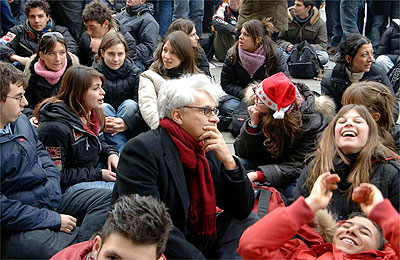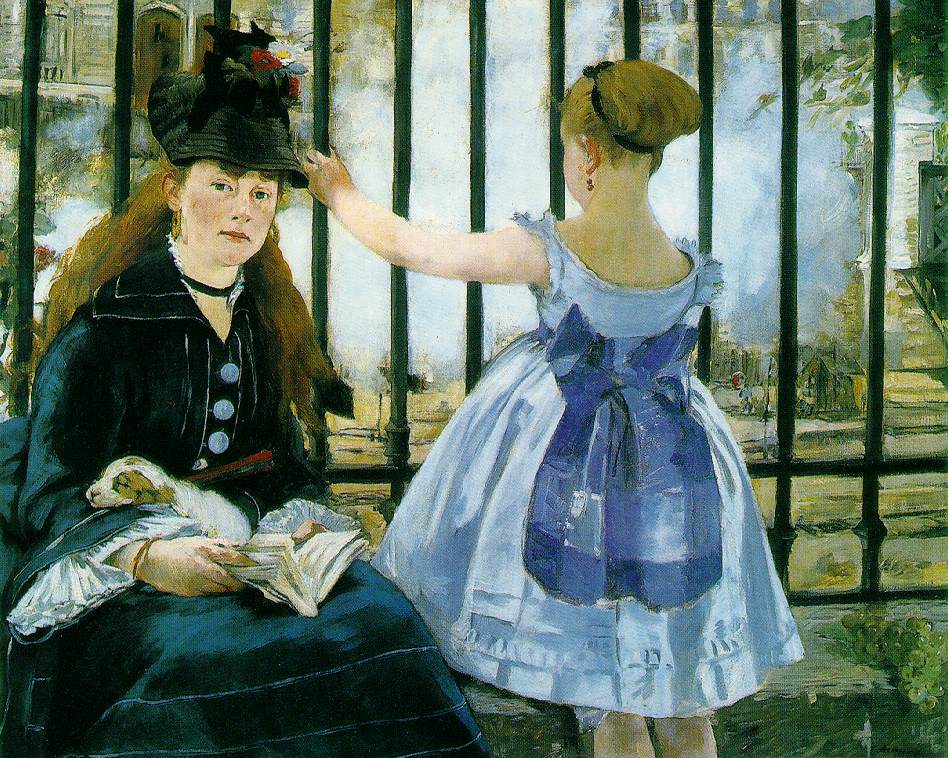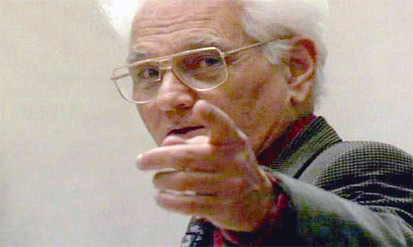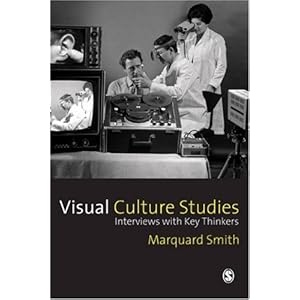Papers
The Science Fiction Politics of Urban Crisis article
Tagged as cinema, novel, politics, radical philosophy, science fiction, Urban

A new article by David Cunningham and Alex Warwick has just appeared in the most excellent journal CITY, vol. 13, no. 4: ‘Unnoticed Apocalypse: The Science Fiction Politics of Urban Crisis’. The essay ranges over a number of contemporary texts from The Coming Insurrection to Rem Koolhaas’ Junkspace to the film District 9.
The nice people at Taylor & Francis Press are offering the first 50 people to make use of it free access to an eprint version from the following link: http://www.tandfonline.com/eprint/AqbgvrWCkCSXg8XZEwgd/full
Call for Papers: ‘Visual Studies as Academic Discipline’ conference, Centre for Visual Studies, Zagreb, Croatia, November 2013
Tagged as education, Europe, visual culture
The past two decades have witnessed a large increase in academic interest in all visual phenomena, including those strictly visual – from painting and film to experimental video and multimedia installations – as well as all the forms of applied arts: graphic and industrial design, fashion and advertising. In many countries, this interest in visual practice is accompanied by the interest in visual theories, primarily in the new discipline of visual studies that keep acquiring academic legitimacy at universities worldwide.
Visual studies have emerged as a result of parallel expansion that occurred respectively in the fields of art history and film studies, whose radical members have converged particular theories of still and moving images, towards an integral science of images. After W.J.T. Mitchell and Gottfried Boehm have sanctioned the pictorial turn as the basic interest of hyper-mediatized society, it became clear that various visual phenomena demand a much wider theoretical platform, one which would take into consideration the definitive erasure of borders between high and low art, between elite and popular culture, as well as between creators and consumers of visual messages.
For the first time in history, the users of images became the producers of images, within an unrestrained circular process, wherein images yield new insights, while insights demand their instantaneous pictorial foundation. The development and expansion of telecommunication technologies have transformed the traditionally understood technical images into a new communication code that is accessible to everyone. However, does this accessibility simultaneously presume that the new communication code is intelligible to everyone using it? Do we really know what are the images telling us, what do they want from us or what is it that we want from them? Do we know in which manner the most recent researches in technosciences prove, by the way of visualization, their radical tenets on biocybernetic complex systems, and how is the notion of image inscribed into the performative bodies of art and fashion today?
The International Scientific Conference Visual Studies as Academic Discipline aims to gather a wide circle of university oriented theorists, so that they can jointly consider the ways in which they deliberate and teach about images, primarily about their overlapping meanings, that arise through the intermedia networking of various visual practices, as well as through the transdisciplinary analyses of contemporary theories. This symposium wishes to examine the theoretical legitimacy of a wide field of visual representations: art, film, photography, design, fashion and performance. It also wishes to consider the disciplinary status of actual visual studies as an (established) scientific paradigm.
We invite all the concerned colleagues to submit their presentations on one of the proposed subjects:
1. The theoretical and disciplinary status of visual studies – two decades after the pictorial turn
2. Visual studies as a “radical” version of art history or a critical detour?
3. The epistemological aspects of visual studies in university curricula
4. The potentials of the applied science of images: interactions between art, film, design, fashion and performance
5. “Non-disciplinarity” as an approach to the multimedia image of the world
6. Fashion studies today: from the theory of fashion to the design of body
Presentations are limited to 20 minutes. In order to participate at the Conference, please send abstract of your paper (150 words) together with short CV to email: purgar@vizualni-studiji.com and zarko.paic@zg.t-com.hr until 21st of July 2013. The scientific board will notify you of the status of your proposal until 25th of July 2013.
Keynote speaker:
W.J.T. Mitchell, University of Chicago, USA
Plenary speakers:
Michele Cometa, University of Palermo, Italy
Marquard Smith, University of Westminster, London, GB
Members of the workgroup Visual Culture in Europe:
Nina Lager Vestberg, Norwegian University of Science and Technology, Trondheim, Norway
Øyvind Vågnes, The Bergen Center for Visual Culture, Norway
Joaquín Barriendos, Columbia University, New York, USA
Ana Maria Guasch, University of Barcelona, Spain
Safet Ahmeti, Center for Visual Studies, Skopje, Macedonia
Max Liljefors, Lund University, Sweden
Almira Ousmanova, European Humanities University, Vilnius, Lithuania
Scientific and organisational board:
Žarko Paić, PhD, Associate Professor, Faculty of Textile Technology, University of Zagreb
Krešimir Purgar, PhD, Center for Visual Studies, Zagreb
Sandra Bischof, PhD, Dean of Faculty of Textile Technology, University of Zagreb
Katarina Nina Simončič, PhD, Assistant Professor, Faculty of Textile Technology, University of Zagreb
Nikola Petković, PhD, Professor, Faculty of Humanities and Social Sciences, University of Rijeka
Leonida Kovač, PhD, Assistant Professor, Academy of Fine Arts, University of Zagreb
Suzana Marjanić, PhD, Senior Research Associate, Institute of Ethnology and Folklore, Zagreb
Goran Sergej Pristaš, Associate Professor, Academy of Dramatic Art, University of Zagreb
Silva Kalčić, Lecturer, Faculty of Textile Technology, University of Zagreb
Petra Krpan, MSc, Faculty of Textile Technology, University of Zagreb
Laura Potrović, MSc, Academy of Dramatic Art, University of Zagreb
Nikola Devčić, Director of the Association “White Wave”, Zagreb
Organizers:
Center for Visual Studies, Zagreb; Tvrđa – Magazine for theory, culture and visual arts; Croatian Writers’ Society; Faculty of Textile Technology, University of Zagreb; Association “White Wave”, Zagreb
The Conference will take place at the Faculty of Textile Technology in Zagreb, from 7th to 9th November 2013. Details will be regularly updated on the web site www.visual-studies.com.
The Conference is organized within the activities of the workgroup Visual Culture in Europe, and is the fourth such event, following previous ones held in London (2010), Barcelona (2011) and Trondheim (2012).
The Conference Visual Studies as Academic Discipline is endorsed by The International Association for Visual Culture.

Our Visiting Professor Allan Stoekl’s review of Adrian Parr’s book The Wrath of Capital: Neoliberalism and Climate Change Politics is currently up as a freebie on the Radical Philosophy site. Check it out here: http://www.radicalphilosophy.com/web/a-differing-shade-of-green
Cunningham on Bifo
Tagged as poetry, politics, radical philosophy

David Cunningham’s reviews of Franco ‘Bifo’ Berardi’s latest book, The Uprising: On Poetry and Finance, is currently up as a freebie on the Radical Philosophy website here.
Cybernetic Revolutionaries review
Tagged as politics, radical philosophy, technology
Jon Goodbun’s review of Eden Medina’s fascinating Cybernetic Revolutionaries: Technology and Politics in Allende’s Chile is currently up as a freebie on the Radical Philosophy website here.
Railways and Fiction
Tagged as Literature, novel, technology

A new piece by Chris Daley in the excellent online journal Alluvium about railway fiction. Here’s the first couple of paragraphs:
Railways are news. On the one hand, they are the source of consternation as above inflation fare rises couple with the perceived drudgery of commuting to characterise the railways as a site of soaring ticket prices and overcrowded, invariably late trains. But this sentiment lives alongside whimsy and romanticism, be it through preservation lines or the restoration of ageing steam engines. This paradoxical image of the railway system is, however, nothing new within the British popular imagination and as Ian Carter (2000) points out, this may have something to do with the railways’ historical link to contested areas of modern everyday life: “So much that we take for granted today was invented or perfected in the nineteenth century to facilitate railways’ development, or to limit their potential for political, fiscal or physical mayhem: standardised time, a disciplined and uniform labour force, large-scale bureaucratic organisation, joint-stock industrial corporations, close State regulation of private capitalists’ activities.”
Similarly, British fiction has maintained an ambivalent relationship with railways. Confronted with a new revolutionary transport system, Victorian novelists offered the most sustained exploration of the potentialities of trains, yet by being, as Nicholas Daly (1999) puts it, ‘the agent and icon of the acceleration of the pace of everyday life’ (463) in the mid-nineteenth century, the railways were also a source for the countless anxieties of industrialisation. Contemporary fiction, in Britain at least, is curiously quiet on the railways, with their appearance often limited to neo-Victorian narratives that attempt to reignite the energy of the steam age. However, to mark the 150 year anniversary of the London Underground, Penguin will release, in March, a series of railway writings that could, perhaps, ignite an imaginative investigation of a transport system that is often seen as mundane, yet is simultaneously a potent symbol of transformation. It is therefore apt to briefly map the terrain of railways in fiction and popular culture in order to anticipate where any future speculation may venture.
Read further at: http://www.alluvium-journal.org/2013/01/12/railways-and-fiction/
Derrida: A Biography review
Tagged as radical philosophy

For fans of Jacques Derrida, David Cunningham’s review of Benoit Peeters’s recently published biography, which appears in the latest issue of Radical Philosophy, is currently up as a freebie on the website. You can read it here: http://www.radicalphilosophy.com/web/grande-biog
Nuclear Criticism
Tagged as Europe, Literature, novel, technology, war

Great piece by Chris Daley in the new online journal Alluvium about nuclear criticism. Here’s the first paragraph:
In 1984, the journal Diacritics set out to define what it labelled as the developing academic terrain of ‘nuclear criticism’. The opening section of the journal entitled ‘Proposal for a Diacritics Colloquium on Nuclear Criticism’ established that ‘critical theory ought to be making a more important contribution to the public discussion of nuclear issues’ and proceeded to list a series of nuclear themes that required immediate consideration. Among these were an examination of the nuclear arms race and the ‘dialectic of mimetic rivalry’ it provoked, ‘the power of horror’ and most pertinently ‘the representation of nuclear war in the media as well as in the literary canon’. This last topic was all the more powerful for a mid-eighties audience as the early years of the decade had seen a re-emergence of nuclear anxieties that were reminiscent of the fears twenty years earlier during the Cuban Missile Crisis. The election of Ronald Reagan in 1980 and his subsequent verbal assaults on the ‘evil empire’ of the Soviet Union, energised the ferocious ideological divide between the two superpowers that had ebbed and flowed in intensity throughout the Cold War. Meanwhile, in both the United States and Britain a variety of cultural and media productions speculated on the consequences of such intense political rhetoric. While these texts were predominantly non-canonical and therefore often overlooked by the nuclear critics, they nonetheless question and evaluate the purpose of the nuclear referent in the political power struggle of the Cold War.
Read further at: http://www.alluvium-journal.org/2012/07/01/nuclear-criticism/
Back in July, IMCC Visiting Fellow Dr Young-Paik Chun from Hongik University in Seoul programmed an event on Korean contemporary art on British soil at London’s Korean Cultural Centre. Details here.
Following the event, a report entitled ‘Situating Korean Fine Art Practice in a Western Context’ written by Dr John Cussans came to our attention. It is attached here, many thanks to John for making it available, and our apologies for the delay in posting it:
Ranciere review
Tagged as Literature, radical philosophy, Theory

David Cunningham’s review of Jacques Ranciere’s The Politics of Literature, published in the latest issue of Radical Philosophy, is currently up as a freebie on the website. You can read it here: http://www.radicalphilosophy.com/uncategorized/flaubert%e2%80%99s-parrot
Metropolis Portuguese translation
Tagged as radical philosophy, Urban

David Cunningham’s 2005 essay ‘The Concept of Metropolis: Philosophy and Urban Form’, originally published in Radical Philosophy, has been translated into Portuguese by Luciana Rocha for the Brazilian journal Revista Periferia.
Any Portuguese readers can see it here: http://www.febf.uerj.br/periferia/index.html
Emma McEvoy on Gothic Music and Performance
Tagged as gothic, music, performance

A quick plug for a superb blog by IMCC affiliate Emma McEvoy, about late eighteenth-century gothic music and performance, on Stirling’s The Gothic Imagination site. As Glennis Byron puts it in the Comments: ‘The post, is, people, pretty amazing … As we plod along, talking about Twilight and True Blood and Zombies and all that ephemeral rubbish, and repeating the same old points about gothic over and over and over and over, some people are actually doing real research’. Read it here.
Update: Capitalist Epics Online
Tagged as novel, radical philosophy

David Cunningham’s essay ‘Capitalist Epics: Abstraction, Totality and the Theory of the Novel’, published in the September issue of Radical Philosophy, is now available online as a pdf on the journal’s Recent Highlights page of their website.
Download it here.
Update: David will be speaking on Philosophy, Capitalism and the Novel at the University of Dundee on Wednesday 24 November (4-6pm). He’ll also be in Glasgow on Thursday 25 giving a talk on the concept of modernism.

In the interests of Open Access, we are very pleased to attach Visual Culture Studies: Interviews with Key Thinkers (Sage, 2008), a PDF of the IMCC Director Marq Smith’s book of interviews with Mieke Bal, Giuliana Bruno, Mark Cheetham, Michael Ann Holly and Keith Moxey, Susan Buck-Morss, Lisa Cartwright, Lennard J. Davis, Hal Foster, Paul Gilroy, Martin Jay, Nicholas Mirzoeff, W.J.T. Mitchell, Peggy Phelan, and Vivian Sobchack. Enjoy, and feel free to circulate.

Last Friday 14th May saw the launch of the Architectural Association’s City Cultures project, to which the IMCC’s David Cunningham has been a contributor. The texts from the project, including David’s ‘Nine Theses on the Metropolis’, can be read or downloaded here.
The AA have also posted a video recording of the launch event on their website, with brief talks from David, Doug Spencer, Peter Carl, and others, at: http://www.aaschool.ac.uk/VIDEO/lecture.php?ID=1230
For those interested, an earlier talk on Metropolitics by David at the AA, as part of their Landscape Urbanism Public Lectures series, is also up on their website. Watch it here.
The Future Papers, Part Three: Stephen Melville
Tagged as art, science fiction, The Future

The third and final part in a short selection of transcriptions of talks from the recent series on ‘The Future’ at the David Roberts Art Foundation. Here’s Stephen Melville’s paper, which constituted a fitting finale to the series. Is the future now?
4. The Future is Now, Now is the Future
Stephen Melville
The two earlier discussions in this series that I was able to attend both seemed to turn quite strongly on a contrast between modern and postmodern representations of the future, more or less as they appear to line up with the contrast between so-called Golden Age and New Wave science fiction. It’s been hard for me, at least, not to hear bits of Beckett stammering in the background, so I was happy to hear Krapp’s Last Tape surface briefly on Saturday. The overall contrast seemed, roughly, one between a future fully distinct from the present and underwritten by a certain faith in science, and a future underwritten by technology and threatened with imminent collapse into the present (or, as one speaker put it, having the shape of an endless intensification of the present) – thus tending also toward a contrast between the utopian and the simulacral, as well as between progress and repetition, and – at least I’ve tried to suggest this – between a certain assumption of shared human being or community and a skepticism about other minds registered, among other places, in a shift in the understanding of the material basis or medium specificity of film from a photographic practice to a form of animation. This last maybe permits an expansion of the postmodern/New Wave text to take account of our apparent current interest in various forms of the undead, and most notably the emergence of the postmodern speed zombie. Neither of these representations seems satisfactory: the Golden Age is, as it were, too much future and in that sense doomed to fail, while the New Wave seems finally not a future at all. Both politics and religion have remained for the most part discreetly in the background, especially religion – which is odd to the extent that one of our continuing interests in the future is, I think, broadly redemptive (certainly notions of apocalypse and the post-apocalyptic, of things more or less shaped like the end of history or the end of the world have put in appearances). It’s perhaps worth opening the contrast a little further off its native ground by taking note of the evident difference between a modern stock market in which one invests for a future that must be awaited, and a postmodern stock market in which futures themselves become a primary commodity and one dreams – sometimes of course in real money – of a present profit made by strip-mining the contingency of the future. Our moment seems to be one that wants to read the phrase ‘the future is now’ – a phrase that I think goes back to the 1950s as a way of naming the new marvels of the present – as ‘now is the future,’ thus as a promise of no more marvels.
Continue reading The Future Papers, Part Three: Stephen Melville

The second part in a short selection of transcriptions of talks from the recent series on ‘The Future’ at the David Roberts Art Foundation. Here’s Garin Dowd’s paper from the final night, seamlessly drifiting from Beckett to Ballard, Deleuze to Daney.
3. ‘Replay: conducts of time x 4 (interstitial pedagogies)’
Garin Dowd
I borrow the idea of conducts of time from Eric Alliez. Conducts would refer to behaviours – and suggest an ethology – but also to channels. Conducts of time are also ‘gaits’ of time, postures of time in movement; equally they might inhere in the pas au-delà, the step which is also a pas – a not, in Jacques Derrida’s formulation (via Blanchot). Conducts of time may give rise to systole or diastole, to condensations and saturations, as in running on the spot, and to disseminations. It may produce reifications and consolidations, or it may liberate blocs of becoming.
The action of Samuel Beckett’s play Krapp’s Last Tape is famously set, according to the stage directions, on ‘a late evening in the future’. While it is anecdotally recorded that the motivation behind this direction was Beckett’s concern that, without such a prompt, what would be required of the audience is the performance of the retrospective science fiction to permit tape recorders to exist prior to their invention (the aged Krapp listens to a recording of himself aged 39, while the play was first staged in 1958), there seems to be much more at play than simply a peculiar concession to verisimilitude. Nonetheless the precession, at once announced and elided by Krapp’s Last Tape, of this particular archival technology, reminds one also that it is the cataloguer of the famous precession of simulacra, Jean Baudrillard, who tells us much, inadvertently, about Beckett’s concerns in this play. In La Gauche Divine we read that ‘le rêve d’une conductibilité absolue [de l’information] ne peut etre qu’excrémentiel’: the dream of an absolute conductibility [of information] can only be excremental. The dream of an absolute conductibility of information is also the predicament or the opportunity of the protagonist in Krapp’s Last Tape. How to phrase; how to gather; how to memorialise ‘eschatologically’ (his last tape) and/or scatalogically (his ‘unattainable laxation’): these issues trouble Krapp, and trouble him in a way which is, in Derrida’s sense, archival. In this respect the play reminds us of what Derrida identifies as the archive’s relationship to the future: ‘the technical structure of the archiving archive also determines the structure of the archivable content even in its very coming into existence and in its relationship to the future’. So on our particular late evening in the future, the future now or round about now, I want to introduce 4 conducts of time.
The Future Papers, Part One: Cunningham & Noys
Tagged as Ballard, the avant-garde, The Future

As promised, we present here the first in a short selection of transcriptions of talks from the recent series on ‘The Future’ at the David Roberts Art Foundation. In the following post we have David Cunningham’s introduction to the series along with Ben Noys’s Ballard paper (which can be found up on his own blog). Further papers by Stephen Melville and Garin Dowd will be posted soon. Enjoy.
1. ‘Introduction: The Tomorrow That Never Was’
David Cunningham
I want to begin with a short story by the writer William Gibson, entitled ‘The Gernsback Continuum’ and published in 1981. You can read it here. In the story, Gibson’s narrator (a hack photographer) is engaged to work on an illustrated history of ‘American Streamlined Moderne’, with the working title The Airstream Futuropolis: The Tomorrow That Never Was: ‘“Think of it … as a kind of alternate America: a 1980 that never happened. An architecture of broken dreams”,’ one of the story’s characters tells him. ‘And as I moved among these secret ruins’, the narrator continues, ‘I found myself wondering what the inhabitants of that lost future would think of the world I lived in.’ Thus progressively propelled into a state of half-paranoiac and half-melancholic delirium, accompanied by hallucinations of a ‘dream Tucson thrown up out of the collective yearning of an era’ – a city ‘soaring up through an architect’s perfect clouds to zeppelin docks and mad neon spires’ – the narrator is only finally returned to the sanity of the present by an immersion in the very seediest aspects of a very contemporary reality.
Continue reading The Future Papers, Part One: Cunningham & Noys

David Cunningham’s 2007 essay on Iain Sinclair, J.G. Ballard and the contemporary novel has been posted by Simon Sellars on his splendid website The Ballardian. Read it here.
Rem Koolhaas interview
Tagged as Architecture, Koolhaas, radical philosophy, Urban
David Cunningham and Jon Goodbun’s interview with OMA architect Rem Koolhaas is now up as a highlight on the Radical Philosophy website. Click here to download the pdf.


The Institute for Modern and Contemporary Culture
University of Westminster Department of English, Linguistics and Cultural Studies
32-38 Wells Street, London W1T 3UW. United Kingdom.


